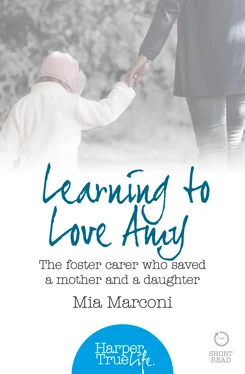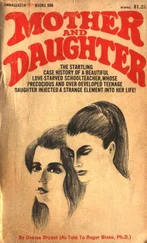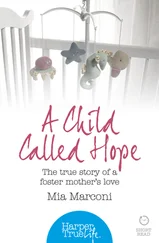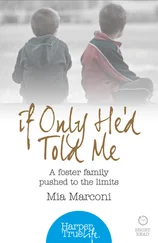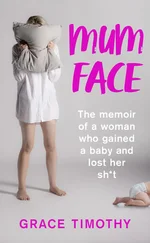Contents Cover Title Page Chapter One Chapter Two Chapter Three Chapter Four Chapter Five Chapter Six Chapter Seven Also by Mia Marconi … Coming soon from Mia Marconi … Moving Memoirs eNewsletter Write for Us Copyright About the Publisher
Cover
Title Page Contents Cover Title Page Chapter One Chapter Two Chapter Three Chapter Four Chapter Five Chapter Six Chapter Seven Also by Mia Marconi … Coming soon from Mia Marconi … Moving Memoirs eNewsletter Write for Us Copyright About the Publisher
Chapter One
Chapter Two
Chapter Three
Chapter Four
Chapter Five
Chapter Six
Chapter Seven
Also by Mia Marconi …
Coming soon from Mia Marconi …
Moving Memoirs eNewsletter
Write for Us
Copyright
About the Publisher
It was a typical British day: rainy, black sky, lightning, with thunder claps so loud they made you jump. Janet and I didn’t care; we were happy dancing away, singing at the tops of our voices while Star Wars played on a loop on the telly. Every so often Janet would sigh, ‘I love Luke Skywalker, Mia. I really love him,’ or she’d say, ‘Mia. My Luke Skywalker, where is he?’ And I would say, ‘He’s up there with the stars, looking for you.’ Then we would collapse, laughing, and carry on dancing.
I wondered what a passerby looking through the front window would make of me whirling a Down’s syndrome teenager round and round, both of us dancing inelegantly, giggling hysterically, while I tried to explain that Luke Skywalker only existed on the television screen. I was cheering her up, they would think, but the reverse was true. I know this sounds odd but Janet was a fantastic therapist to me, and came along just when I needed her.
I met Janet because she lived next door to us, with her lovely mum Lizzy and younger sister Emma. The first time I saw her I looked at her big, innocent smile and couldn’t help but smile back. We hit it off straight away, which is unusual because Down’s syndrome children are quite fussy and only interact with certain people, but I did not dismiss her as so many other people did, and Janet picked up on that. The look of relief on Lizzy’s face when she realised her daughter was going to be accepted by us was a special moment.
‘Thank you,’ she mouthed silently at me.
‘Janet is lovely,’ I mouthed silently back.
Emma was six, the same age as my youngest daughter Ruby, and although my eldest, Francesca, was seven, and Janet fifteen, because of her disability Janet was oblivious to the fact that she was twice their age and joined in with all their games. I would often find them happily playing with Barbies, getting them ready to go to balls and parties.
Our family – Martin, Francesca, Ruby and I – had only recently moved into the house next to Janet and her family, and I believed that fate had led us there. I felt as though we had found exactly the right house at exactly the right time, because our old home was full of sadness after the sudden death of our foster child Hope. I had cried so many tears in that house, I felt the only real way to exorcise the sadness was to leave.
I know it’s a funny thing to say about mere bricks and mortar, but the place we found was healing in a way I could never have predicted. Firstly, we had bought it from the local parish church, and the moment you walked through the door you were enveloped by a feeling of calm. It was like an invisible being wrapping their arms around you, whispering that everything was going to be okay. I felt safe, protected and secure for the first time in months. The irony was that after Hope’s death I had craved the peace, tranquillity and silence of our local church, and now I got that same feeling in our new house.
It was in a quiet, tree-lined road with a large village-style green at the top. Priests had lived there and I was sure that was why its spiritual atmosphere was so strong. You could feel every prayer and every blessing that had ever been said there, as though all that love had been absorbed by the walls.
When I walked through the door that first time, I fell in love with it, totally oblivious to the amount of work that needed doing to make it habitable. The roof leaked and needed replacing; it would cost a fortune and had to be done fast, because when it rained out came the buckets. Me and the girls often slept in one room, giggling when we had to get up to empty them. Martin never saw the funny side – why would he? He had to do all the work – and slept next door where it was drier.
Martin looked at the bare walls and floorboards, and walked around muttering under his breath, ‘What have we done? It needs new everything, and we don’t have the money to do it!’
I just smiled and said, ‘We will. We will be able to make this our home, and I promise you, it will be a happy one.’
I’d give him a big kiss, the girls would hug his legs, Jack and Jill (the dogs) would start licking his hand and he’d smile and walk off muttering again, pretending to be cross. As always, I was the optimist and Martin the pessimist. We were Yin and Yang, chalk and cheese, Tom and Jerry, and that’s why we worked so well together.
We settled into a routine. Martin would spend all day driving his cab, then come home, have his dinner and start working on the house. I would take the girls to school, come home and start painting. After a few months we were making progress, the crumbling walls were replastered, the peeling paint was sanded down and our furniture was beginning to make it look homely.
We were in a lovely area in Kent and Lizzy and her family could not have been better neighbours.
Lizzy was slim, with light-brown hair and clear skin. She was cool, calm and collected, and never raised her voice – a quality I have never mastered, which I put down to my fiery Italian blood. Despite our differences, though, we had so much in common. Her husband was Italian, like my dad, and she was an osteopath, so in a caring profession like me, and we both adored children.
We each had two kids and were devoted, caring mothers. The one difference between us when it came to parenting was that she did not believe in pushing her children. If Janet didn’t feel like getting on the coach to go to college, Lizzy would say, ‘Oh Janet, if you don’t want to go you don’t have to,’ whereas I would have just shouted, ‘Janet, get on the bus and put your seatbelt on!’
We all have our own parenting skills and ways of raising children, though, and Lizzy’s kids were lovely, so whatever she was doing worked for her. That’s one thing that never ceases to amaze me about families: how we can all do it so differently, but as long as your intentions are good and you lavish children with love and care, and respond when they need you, they seem to turn out fine.
Emma and Ruby became best friends and when the girls were home, Janet would dress up with them and they would all sit there playing with make-up and laughing. What was lovely to watch was how Emma, who was a shy little girl, began to accept Janet who, to be honest, she was a bit embarrassed to be seen with. At first, when Ruby and Francesca would say, ‘Come on, Janet, come on, Emma; we’re going up the shops,’ Emma would tell Janet she couldn’t come, but after a while, because Ruby and Francesca treated Janet as though she had no disability, Janet began to tag along and Emma stopped being embarrassed by her Down’s syndrome sister.
Janet and I had a wonderful connection and while the girls were at school, she was my best friend. Janet was a character. I loved her because she was brutally honest and had a simple approach to life and a straightforward way of talking. If she didn’t like you she would tell you straight. She, in turn, loved that I treated her the same as I would anyone else. I have always had that ability; I don’t care if you’re the Queen or a tramp – everyone is equal in my eyes.
Читать дальше
